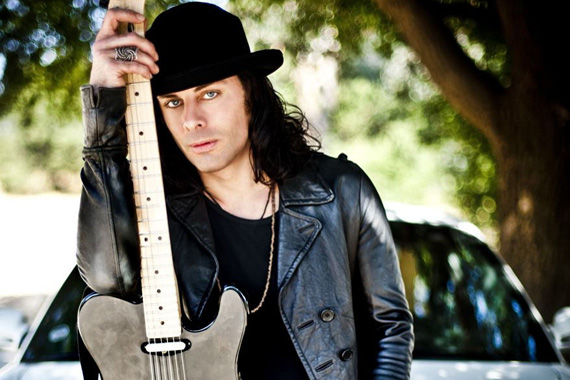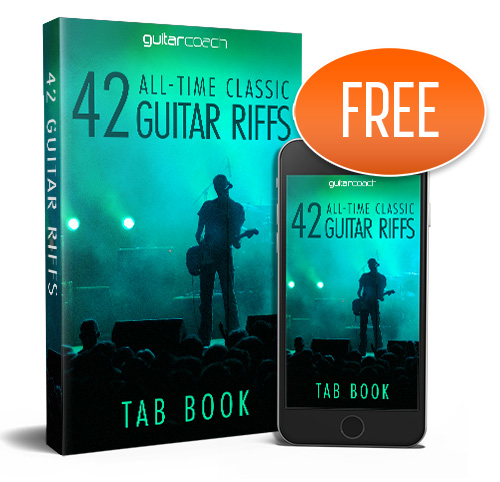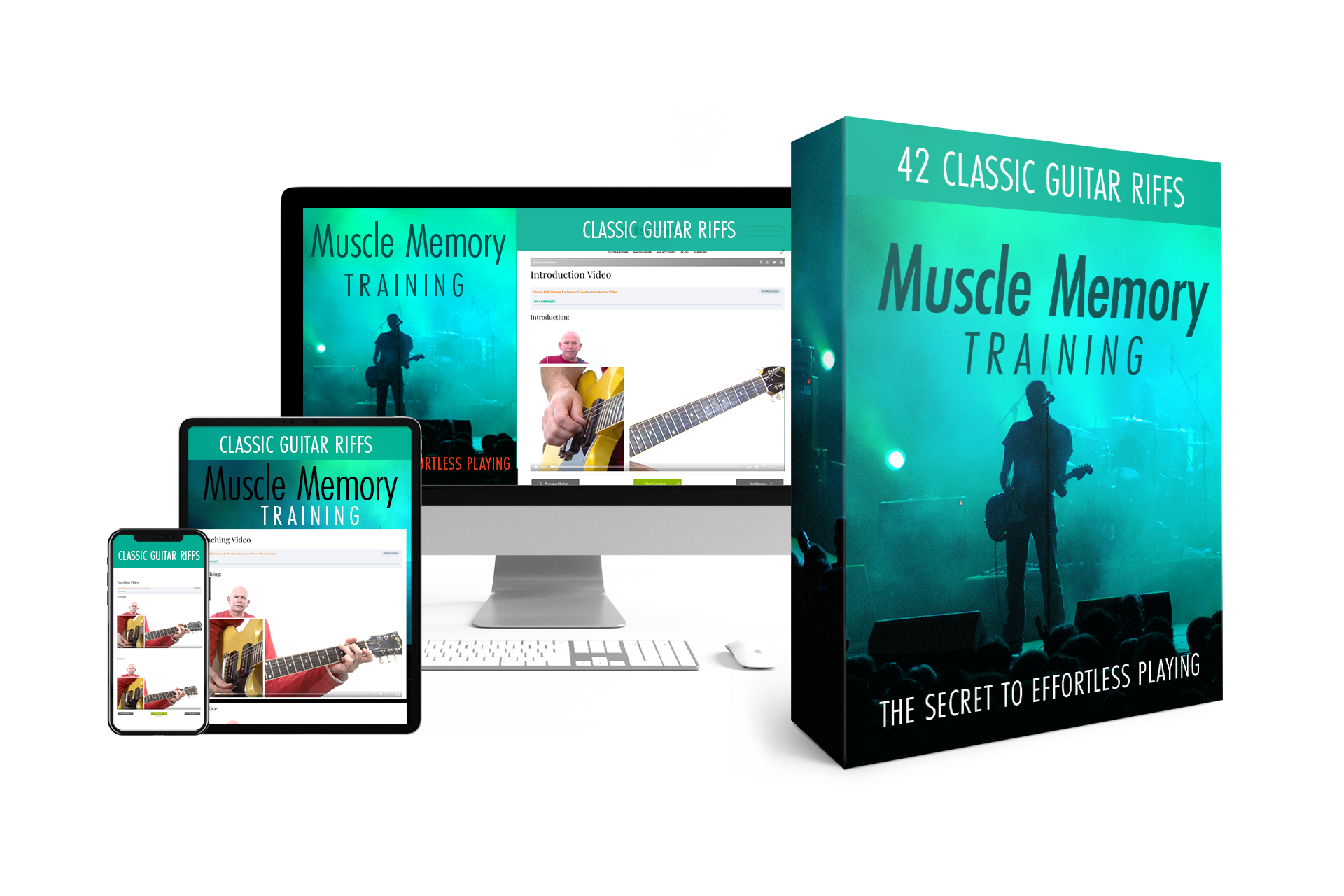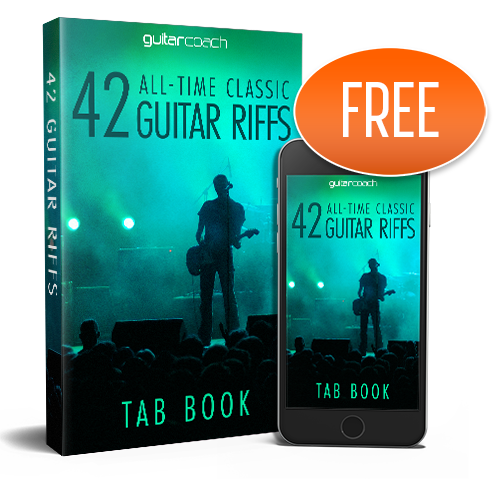If you’re not familiar with Richie Kotzen —despite the fact that he’s been making records and redefining the guitar for over 20 years — his new album, 24 Hours, is your chance. It features the full spectrum of what he’s known for: searing riffs, a good dose of soul and a broad palette of styles.

Kotzen is revered for his guitar playing, although to hear him tell it, the instrument has become more of a vehicle for creating music than the forefront of his sound.
“I remember an article I read in a magazine about one guitar player who wanted to sound like another, and he plugged into the other guy’s rig, but it still sounded like him. The thing you’ve got to realize is you sound the way you sound because it’s you. I sound like me because of my influences and the way my technique evolved, which is based on a lot of things. It’s based on my influences, where I grew up and the music I heard when I was young. It’s based on physicality, the size of my hands. It’s based on a lot of things, my taste, the decisions I make. It’s almost like the technique is the foundation, but so much of it isn’t about the technique. If you look at it like a conversation, you can know a lot of words, but it doesn’t necessarily mean that you’re going to say anything that people are going to connect with. Or you can have a limited vocabulary and say something that really hits home with somebody. I think people have to look at it that way, and when they’re developing their technique they have to consider, “What is it that I want to do? I want to express myself through music. What techniques do I need to play what I’m hearing or feeling?” That’s kind of what I did. I was more of a rock kind of guy, so my things are based in that genre. I didn’t grow up listening to flamenco music, so I don’t have that in me. My point is that you have to figure out, “I want to do this. What are the tools I’m going to need?” You develop them and build that foundation, and from there you become creative with it and create your music It’s very easy for people to get caught up in the other stuff and miss the real reason something sounds the way it sounds.”
You compared playing music to a conversation. The tendency, especially for a young player, is to play everything they can, as loud as they can, as fast as they can.
When did you begin to understand that less is more and fewer notes can speak volumes?
Probably in my very early 20s. In my teens I was what you described: someone who wanted to be screaming and wailing and shredding like a wild man. Suddenly, around 20 or 21, I got into singing more and my whol perception of music changed. I realized that I now have a lot of technique, probably too much for the kind of music I want to play, so I need to pull it back, be creative about it and make music, rather than try to show people what I’m capable of.”
How do you push through when you’re having a bad night?
“You’ve got to find some component that actually is working or is more or less salvageable. Let’s say I’m having one of those nights like in Costa Rica, where I can’t hear myself, so maybe I’ll stop pushing as a singer or I won’t try to sing certain notes, but I’ll still try to deliver the song and maybe focus more on the guitar or do a longer solo. Or if I’m having a bad night soloing, maybe I’ll play three songs in a row that don’t have a solo and just focus on singing, and by the time I come back to a song and it’s time to solo, I’ll feel inspired to do it.
Another thing I do, is for a long time, I have abandoned the notion of a set list, because on previous tours I was playing and reading the vibe of the room, and the vibe of me after getting off of a long bus ride or a long flight, and I’d look at that song and think, Man, I don’t feel like playing that song right now; it’s not going to work because I’m not there.” I remember we were in Lithuania and we had the set list and I said to the band, “I’m going to call tunes.” It started off weird, but it turned into a really good show because I was following the mood of the room and where I was vocally and all that, so after that, we stopped with the set list. I would just call out tunes and “I can do this song now, let’s do this, I feel like I can do that.” What’s funny is that in certain countries they want the set list, and when I say there’s no set list they get crazy and panicky, like, “What do you mean? We need a set list!” “I don’t know; we’ll see what happens after the gig.”
Has online instructional content diminished the quest for knowledge? You learned by playing a record over and over and figuring things out that way.
Obviously, you have so much more information at your disposal and I think that’s really great. I wish I’d had all that information when I was first starting to play. But at the clinic it’s still like a concert, the one-on-on connection where you’re talking to someone in that moment, so something might be said that leads someone else to ask another question. It’s more of a personal thing and more valuable in a sense, if you’re at the right kind of clinic where you’re hearing first-hand answers to things that you migh want to know. Of course, if you want to know how to play a certain kind of lick, you can Google it or look on YouTube, but if there’s anothe kind of insight you want to hear, there’s nothing like being part of a conversation with someone who’s been doing it for most of their life.
You’ve stated before that you hate to practice. If you had to pick the lesser of two evils, would you practice or do an interview?
“Doing a good interview is better than practising. We’re talking about practising. It’s not a gig. It’s practising, you know? If it’s a gig, it’s one thing, but practice? Am I going to get better now by practising at this point? I’m 40 years old, I’ve been playing since I was 7, I’m not going to practice. You know what that’s from? Allen Iverson. He goes, “How am I going to make my team mates better by practising We’re talking about practice here,” so I want to be sure that people know I’m doing a gag about Iverson. Otherwise, they’re going to think I’m a real pr–k!
Honestly, for real, I’ll tell you how I do practice, because I’m practising right now. I’ve got this record that I just made, and there’s a couple songs on here that when I did the guitar part I just laid it down, then I went in the studio and laid down the vocal. Now here we are, months later, some of these songs a year later, and I’ve got to figure out how am I going to sing and play this part at the same time. When I first tried to do it, I can’t. This is when practising comes into play for me. I’m sitting around my house trying to figure out how to play this rhythm guitar part and fit my singing over it. Also there’s certain lines, like in “24 Hours” I do this lick in the beginning of the song. I did that part of the recording a long time ago and I’m listening to it thinking, What the hell did I play? I don’t know what I did. So I spent hours listening to it, figuring it out, and there I am practising you know, here’s Richie practising something that he wrote that he can’t play. So that’s how my practice world goes. I hear something that I can’t quite do. I’ve got to sit down and practice and figure out how to do it. Not unlike what you did when you were young, but minus moving the needle on the vinyl.
Yeah, but the real twisted thing is I’m not sitting there listening to Eddie [Van Halen] anymore. I’m sitting there listening to myself and trying to figure out what I did. What the hell did I do?”
How long did it take you to find the right guitar,
or did it find you?
“Interesting. I’ll tell you what happened. After I made my second record, I was looking for a certain sound and I remember going and buying a Strat and a Telecaster. I got real into the Telecaster and I played the Strat as well, but the Tele for some reason seemed easy for me to play. It sounded the way I wanted it to sound, it responded the way I wanted it to respond, so my third record I used that Telecaster and that Strat a lot. Right after that, Ibanez started making me Telecaster copies, then suddenly I got the Poison gig. Fender had come down to the studio because the bass player was playing Fender, and they saw these and said, “You should be playing a real one.” They gave me this brown tobacco sunburst Tele that became my main guitar and they gave me a red Strat. Shortly after that, I signed with Fender and we developed a signature model. Now there’s, I think, four signature models that are sold —a couple of Telecaster variations and a couple of Strat variations.”
Are they any easier to obtain?
“It’s real weird. I don’t really understand the logic behind Fender USA as far as the people who are making decisions, because the guitar has been selling amazingly well, all of them, and I know this because I’m sent statements, so I can see that people like it and they’re buying it. Why they want to make it so difficult for people in the United States to get this instrument makes absolutely no sense to me. We had a period of time when it was being sold in Europe through certain stores on an official level and somehow that changed, but Japan is able to distribute the guitars outside of Japan, so if you go on certain websites, you can order the guitar. There’ fans I have in the United States who have been able to order the guitar, but not everybody’s comfortable with that. At some point it would be really nice to see that guitar available here at Guitar Centre or wherever people like to go to buy guitars.”
What is the difference between playing guitar and being a guitarist?
“Oh, hmm … interesting. I think I play the guitar. I don’t … am I a guitarist? I play the guitar because it’s a tool for me to express something creative, which would be a song or a point of view. That’s why on my records the guitar isn’t always the lead instrument. Sometimes it’s the electric piano, sometimes it’s the bass. I don’t know that I would sit around and proclaim that I’m a guitarist. I play the guitar. I love playing the guitar. I love to play the guitar and it’s something I’ll always do, but bigger than playing the guitar for me is creating music. Making music is the big picture for me, so to say I’m a guitarist I think pulls me off of my main agenda, which is to make music. I play the guitar as well as sing, I can hack my way around a piano and drums, and I’m a pretty good bass player. But it only works in my little world. If someone hired me to play drums in their band, it would be a disaster, a real disaster, or if they hired me to be their keyboard player, I would ruin the band. It only works in the world I’ve created for myself.”
For more visit:http://richiekotzen.com/
You can read more articles by Alison Richter here: http://www.examiner.com/music-industry-innational/alison-richter
by Alison Richter




